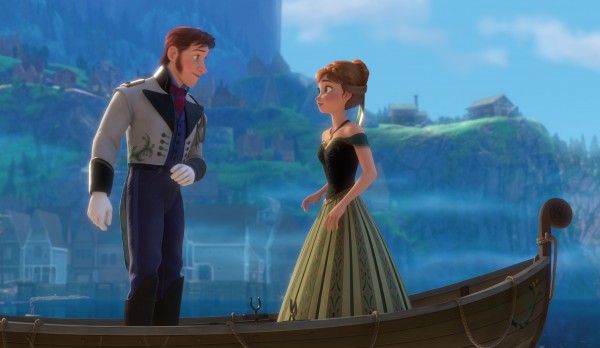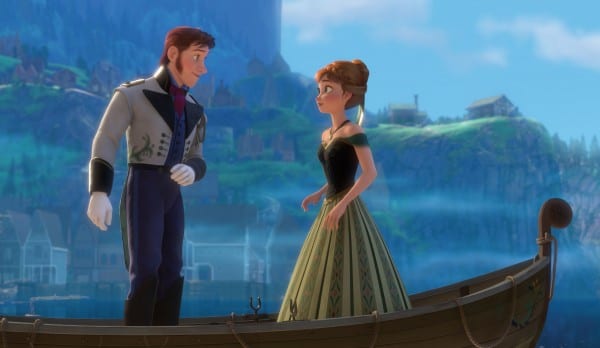
The first time I saw a friend link to a page on Facebook, I figured he had been Punk’d. The blog post, written by a Mormon grandmother, railed on against the movie Frozen as clearly a pro-gay-marriage message hidden within a fairy tale. This could not be real, after all — she’s obviously bat-shit crazy, and that’s the essence of being Punk’d: It gets you to believe something that’s a total goof. It’s satire.
But much as I tried to find the “gotcha” in the blog, I couldn’t. There was only one conclusion: This lady is serious.
What makes that so unusual is that she analyzes Frozen as if she’s an academic dissecting a film for a thesis. She reads into every moment of the film, looking for the secret pro-gay messages embedded to destroy the fabric of society. And she’s absolutely, insanely wrong.
Don’t misunderstand: I spend a great deal of my waking hours analyzing films and parsing the imagery. And certainly a lot of animated films have messages of tolerance and acceptance: The Hunchback of Notre Dame teaches not to judge based on appearances; The Little Mermaid speaks to female empowerment; Wall-E embraces connecting to our humanity, even if we are machines; in The Croods, Darwinian evolution is treated as a fact, and progress deemed necessary for survival. She’s not wrong looking for them. She’s just gone way overboard trying to prove it.
The blog itself is tedious and poorly written; she doesn’t even get to her points until well into it. But if you scroll down past the image of the Frozen billboard, she eventually gets into particulars. Among her more elaborate hidden messages include Elsa becoming a “queen,” and that the death of her parents represents killing off her oppressors so she can “come out of the closet.” Now, if you’ve seen the film, you know that the parents’ death is portrayed as tragic, not victorious.
The fact is, she does make a point. Elsa is forced into a role, and she struggles to follow her own path. That is true of gays as well. And girls in male-dominated societies. And poor people. And creative (non-gay) people. And anyone who wants to march to his own drummer. It’s also the story of The Jazz Singer.)
What’s fascinating to me is how the blogger is so angered and disturbed by this movie as an obvious metaphor against heteronormative ideals and patently trying to indoctrinate kids to be gay-friendly. And worst of all, she misstates almost everything about gay people — that we feel “shame” being attracted to the same sex (not me!), that we consider ourselves victims (I’m only a victim when you deny me rights), that we are “immoral” (what’s immoral his how bad her prose is).
You can’t read it all in one sitting — or rather, you shouldn’t (click here). But it’s a remarkable insight, in my mind, to the guilt-ridden mind of a bigot-in-denial, a person so concerned that her moral compass may be off that she lashes out at everything that makes her question her stance, much the way Macbeth continued to see the ghosts of those he killed. The fault, dear lady, lies not in our movies, but in yourself.











